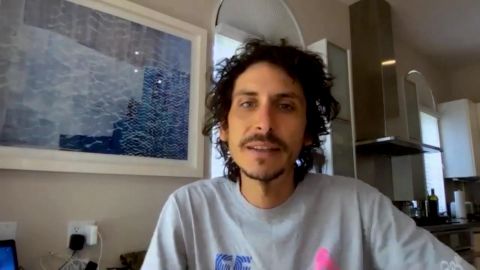Read Transcript EXPAND
LAURA COATES, CNN LEGAL ANALYST: He tried to talk about it being in the court of public opinion, trial by newspaper, talking about the notions of due process, obviously. And it is, of course, someone’s right to profess their innocence. And we do have that presumption of innocence. But we’re talking about the criminal context here, where somebody is — now has the benefit of a more-than-100- page report that talks about the findings, finding them as credible witnesses, credible victims of this behavior. It buttresses the credibility even in the criminal context as well. And so now he’s competing and fighting in multiple friends, the political realm, as you mentioned, of impeachment, Bianna, but now also the notion of the civil world, potential civil claims against him, and now the criminal context. Now, of course, just to ground everyone in the reality, the allegations are largely around what are considered misdemeanor offenses, meaning the nonconsensual offensive touching. That seems to be the substance of the claim that we’re now facing and thinking about. So that’s a misdemeanor, not as serious in terms of the criminal code as a felony. But that’s only one of the five different prosecutors who are even looking at these issues.
BIANNA GOLODRYGA: And, of course, we should note that the governor has denied all of these accusations. But, as reported by the attorney general and those who were assisting in this investigation, all of these victims, these women proved to be credible, from their standpoint, over these — the course of these five months. For the woman who filed this latest criminal complaint, she told investigators — she had been an assistant to the governor. And she told investigators he had pulled her in for a close hug and then, after that, when she pulled away, he slid his hand under her blouse and cupped her breasts. She described that in great detail. Could we see from this complaint perhaps even an arrest?
COATES: Well, we certainly, first of all, have to remember the investigative report only — found her to be credible. They found the governor’s accounts to be not credible, which is very, very telling in terms of the overall evaluation of how they saw that. They were well aware of his denials at the time. They were well aware of the referral to sort of internal organization office through counsel to figure out how to best proceed. And, knowing that, they stated that they did not find his denials or his recollection to be credible. That’s very, very telling. But in terms of an actual charge, again, misdemeanor context. If this — if the prosecutors in this case, finding and looking at that report, and meeting with the person who as to us is still anonymous as the person executive number one, if they also independently come to the conclusion that it’s credible, they could present an arrest, in terms of an arrest warrant or some sort of charge filed against the governor, which, of course, puts him in very difficult and tough water. But, again, misdemeanors and felonies are treated very differently United States, as you well know. And misdemeanors usually have about a six-month potential in terms of incarceration, if at all.
About This Episode EXPAND
Dr. Larry Brilliant; Dr. Karl Lauterbach; Laura Coates; Peter Bergen; Lachlan Morton
LEARN MORE



